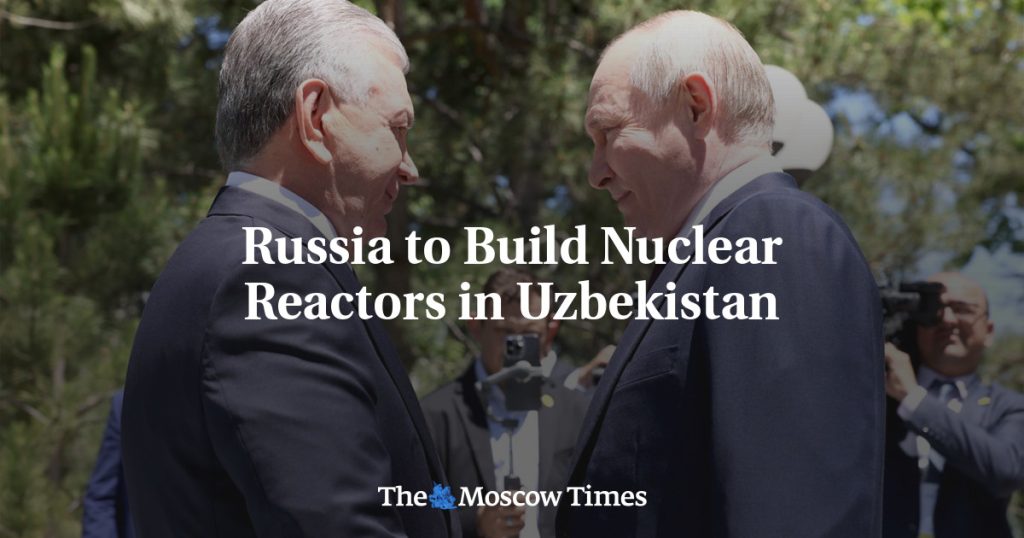Russia and Uzbekistan have signed an agreement for Russia to help Uzbekistan build small-scale nuclear reactors, as part of President Vladimir Putin’s recent visit to the Central Asian country. Talks have been ongoing since 2018 about constructing Uzbekistan’s first nuclear power plant, with a estimated price tag of $13 billion to be primarily financed through a Russian loan. Uzbek President Shavkat Mirziyoyev mentioned that an important agreement on the implementation of projects for small modular reactors in Uzbekistan would be signed during talks with Putin.
Russia has previously used the construction of nuclear power plants in countries like India and Turkey as a way to increase its regional influence and strengthen ties with emerging markets. Uzbekistan currently relies on gas turbines for most of its electricity generation, but aims to utilize its large natural gas reserves more effectively to extract greater value considering concerns about energy shortages. As part of Putin’s recent visit, Russia and Uzbekistan agreed to increase trade to $30 billion, marking his third foreign trip since assuming his fifth presidential term.
The project for building small-scale nuclear reactors in Uzbekistan is significant as it marks the country’s first foray into nuclear power generation. As the world’s fifth top supplier of uranium, Uzbekistan is well positioned to explore nuclear energy as a means to diversify its energy sources and bolster its energy security. The cooperation between Russia and Uzbekistan in this venture indicates a deepening of ties between the two countries, with Russia providing expertise and support in the nuclear energy sector.
The agreement between Russia and Uzbekistan also underscores the strategic importance of nuclear power in the region, particularly in Central Asia where energy demands are rising. By building small modular reactors, Uzbekistan aims to enhance its energy infrastructure and reduce its dependency on traditional fossil fuels. This move aligns with global trends towards cleaner and more sustainable energy sources, ensuring Uzbekistan’s energy security in the long term.
The increase in trade between Russia and Uzbekistan to $30 billion signals a strengthening economic partnership between the two countries. As Russia seeks to expand its economic reach in Central Asia, Uzbekistan presents a promising market for Russian goods and services. The energy sector, including nuclear power, is likely to play a key role in this economic cooperation, with Russia’s technical expertise being a valuable asset for Uzbekistan’s energy development goals.
Overall, the agreement between Russia and Uzbekistan for the construction of small-scale nuclear reactors represents a significant step towards diversifying Uzbekistan’s energy mix and strengthening bilateral ties between the two countries. The project’s financing through a Russian loan highlights the importance of international cooperation in the sphere of nuclear energy. As Uzbekistan looks towards a more sustainable energy future, Russia’s support and expertise will be instrumental in helping the country achieve its energy security goals.


